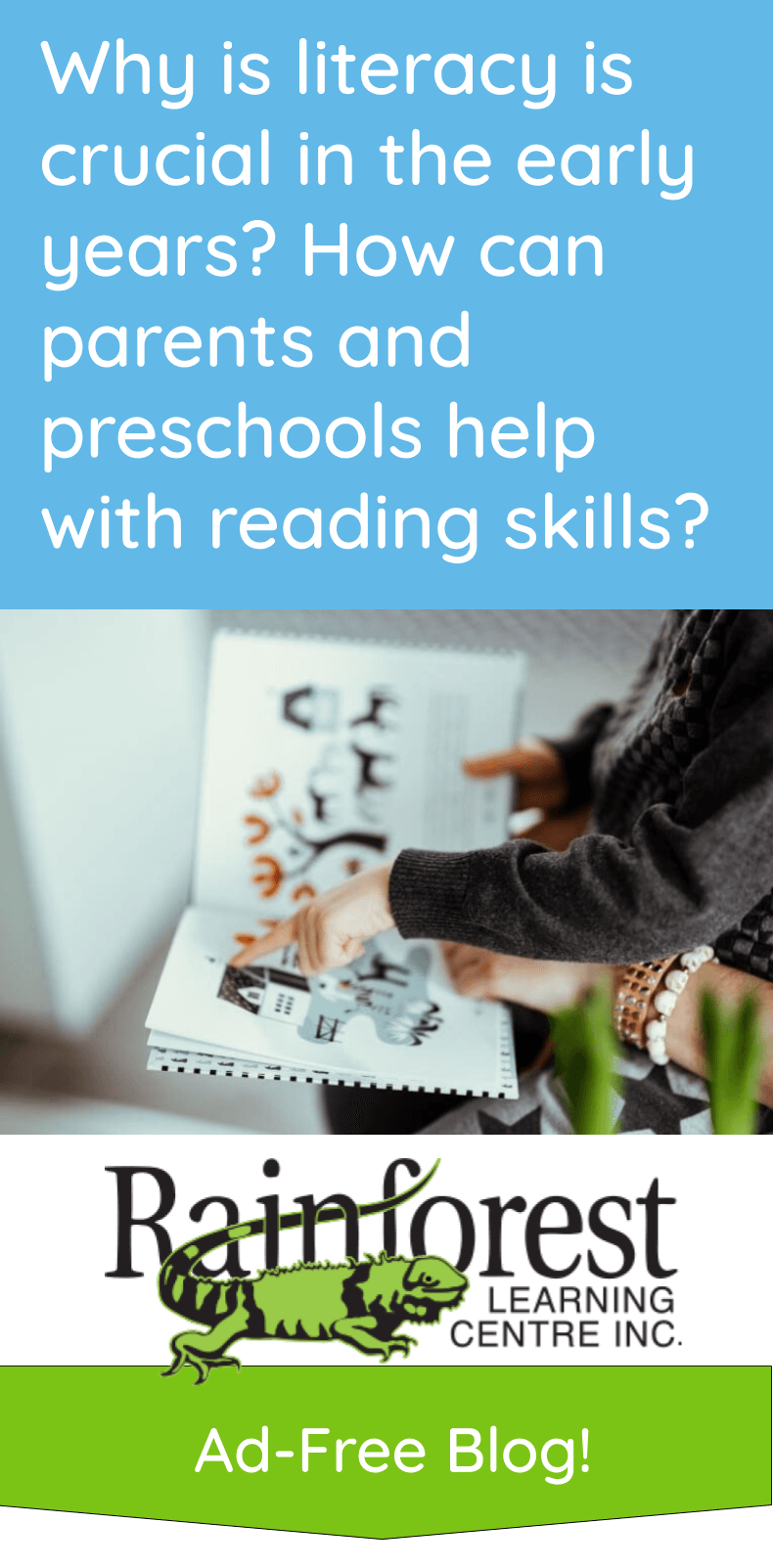
When kids are young, it’s easy to think that they’ll just naturally pick up language as life goes on. Or that they’ll learn to read when they enter kindergarten. However, these days, we know that literacy is crucial in the early years – even starting in the first months of life. This means a lot for parenting habits at home, as well as for the secondary caregivers in a child’s life. That includes daycare and preschool teachers!
In this article, we’ll explain why literacy is so important to establish through early childhood education, and how preschools can help with reading skills.
Early childhood literacy determines success later in life
Believe it or not, the first five years or so of a child’s life are pertinent to their later successes. Some research and publications are now reporting that literacy skills in early childhood can have an affect on how well children do at the end of primary school, or later.
Further to that, literacy overall determines in large part, the employability and health of everyday citizens. This is why governments work hard to encourage literacy – it means less strain on economics and healthcare systems.
Take for example the simple exercise of reading instructions on a bottle of prescription pills. If someone can’t do that, they are less likely to be able to manage their health, as with regards to that necessary medication. But imagine what other parts of their health can suffer as a result of not being able to read.
Many jobs in our ‘think tank’ economy are also based on the premise that our population is capable of reading and writing. Studies have found a strong correlation between Canadian literacy skills, and the ability to earn higher incomes, or even to be employed at all.
And, the solution to literacy shortages? Encouraging literacy in early childhood. Time and again, studies and research are showing that reading activities in early life are the best way to set up our children for scholastic achievement.
Thankfully, if parents are not literate, or if English is their second language, it’s ok! Even talking through a story book by just looking at pictures, and asking questions, is helpful. Parents can do a lot, outside the preschool classroom, to encourage reading. Asking kids to point out letters at the grocery store, or to notice signs on the street – it all helps!
Reading out loud with children is part of language development, not a ‘nice to have’ part of it
We now know that literacy starts long before learning how to read, just like language starts long before children learn how to speak. It’s not that reading is the second step, or the ‘nice to have’ skill of knowing how to speak a language. It is an integral part of it all. Reading and writing work together with verbal language skills.
So, reading out loud with children is a natural part of forming language and cognitive skills. It helps to make connections and meaning between words, in print and verbal form. This also happens with pictures and objects. It doesn’t necessarily have to relate to reading with text.
More to that, reading out loud with children – whether at home, at preschool or daycare – encourages a love of reading. This motivation to read, to enjoy story telling, or to acquire information is crucial. It is an acquired skill that should be practiced early. In other words, children need to pick up the idea that reading is fun, and has personal benefits to them.
This way, when children enter the formal school years, they are already poised for success, since school is, after all, the instillation of knowledge, for the ability to get through life as functioning citizens.
Reading with children promotes healthy relationships and self esteem
Children who read with their parents at home experience positive relationship development with family members. This helps in more ways than you might think. It’s not just a way to wind down at bedtime, or to ask kids to do a quiet activity.
While you read with your children, they build listening and speaking skills. They learn how to express themselves to others. And, they get attention from you. That helps them know that they are cared for and loved, which in turn, helps their self esteem. It also builds trust between you and them, inevitably.
Preschools are poised to offer strong literacy skills in the early years
Above we mentioned that if parents don’t have strong literacy skills, they can still encourage reading with story time based on pictures in a book. The most early reading is usually with easy-to-identify objects anyway. Whatever language it is, just read with your children!
However, as they grow a little older, it may be wise to start preschool for at least a year before entering kindergarten. The preschool years can also be part of a daycare program that starts around 2.5 years (as long as the daycare offers this type of programming). This will help to ‘gear them up’ for kindergarten, and strengthen the skills they’ll need for early childhood literacy.
Preschools are designed to educate for the early childhood years. And that includes literacy skills! The job may be easier done with specialists, than only at home. However, this decision will depend on you, as the parent, of course!
See related posts on our blog:
- 4 preschool journaling experiences to try in early childhood
- What is the best way to teach word recognition to early childhood readers?
- 4 Benefits of kids telling their own stories
- 5 Simple ways to teach preschoolers phonics basics
- How to teach digraphs to preschool children (6 ways)
- 5 Easy ways to teach the alphabet to preschoolers
- Does my child need a speech therapist? Here is what to know
- What is cognitive development in early childhood?
